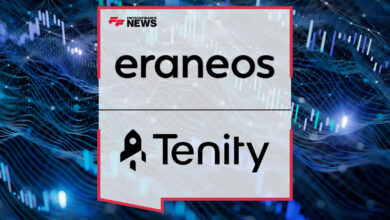Synapse’s Specter of Mingled Funds Haunts Bankruptcy Process

If there’s a surety in FinTech, and particularly within banking as a service, it’s that there will be more regulations.
It’s likely that there will be stricter governance and transparency on account oversight — specifically, making sure that there is no commingling of funds.
The blurring of the lines of where money is being moved, where it’s kept and just whose dollars are being access when funds are withdrawn, winds up being a headache when it comes to tracing fund flows, paying the IRS or making customers whole.
Case in point: As noted in this post on X (formerly Twitter) from Jason Mikula of FinTech Business Weekly, bankrupt Synapse’s former CEO Sakaet Pathak allegedly stated at the company’s creditor hearing this week that “Synapse may have co-mingled end-user funds, fintech programs’ reserve & operating funds, and Synapse’s own operating funds in FBO accounts at Evolve.”
WOW:
Synapse may have co-mingled end-user funds, fintech programs’ reserve & operating funds, and Synapse’s own operating funds in FBO accounts at Evolve, former CEO Sankaet Pathak said under oath at yesterday’s creditor committee hearing.
— Jason Mikula (@mikulaja) June 11, 2024
A Winding Path
It may be the case that untangling and unfreezing account holders’ assets is going to get a lot more complicated.
As PYMNTS reported Monday (June 10), during last week’s hearing spotlighting remarks and strategies from court appointed trustee Jelena McWilliams in California’s Central District Bankruptcy Court, a shortfall of approximately $85 million exists, and McWilliams has said that restoring access to customer funds challenging.
There’s no money in place to get a forensic accountant on the case to track down what’s happened and to reconcile the funds. We noted that Evolve Bank and Trust, one of Synapse’s partner banks, has apparently struggled to reconcile its deposits against Synapse’s proprietary ledger system due to its complexity and the absence of knowledgeable personnel.
Determining Who’s Owed What
There have been a few paths forward already proposed, including a scenario where assets held in the Synapse Brokerage account designated “for benefit of” (FBO) could potentially be consolidated into a singular account, with the appointed trustee and overseeing court determining the appropriate disbursement amounts to each individual end user.
But if there’s been commingling, as suggested above, the waters are muddied quite a bit in terms of what’s getting disbursed, and to which appropriate party.
The rise of FinTech-as-a service firms has been heady, but in at least some cases, the regulators have come knocking. As PYMNTS reported in September, Solid Financial was being accused of falsifying its revenue numbers to woo investors. The company took what has been termed a “very aggressive” approach to signing new customers — without doing due diligence to vet those clients.
The Federal Deposit Insurance Corp. (FDIC) has also been busy.
The agency issued several “cease and desist” orders warning of misrepresentations from digital upstarts that their customer accounts are, effectively, backstopped by deposit insurance, PYMNTS reported Tuesday (June 11).
The laws are such that enterprises are prohibited from “making false or misleading representations about deposit insurance, using the FDIC’s name or logo in a manner that would imply that an uninsured financial product is insured or guaranteed by the FDIC, or knowingly misrepresenting the extent and manner of deposit insurance.” Cease and desist letters have been issued to companies like Prizepool, AmeriStar and virtual wallet firm Organo Payments.
The FDIC earlier this month issued a consumer news bulletin that said that as consumers open accounts through non-bank firms, “it is not always clear to consumers if they are dealing directly with an FDIC-insured bank or with a nonbank company.”
Funds sent to a non-bank company are not eligible for FDIC insurance “until the company deposits them in an FDIC-insured bank and after other conditions are met,” per the FDIC. Co-mingled accounts would make it hard to know that individuals and enterprises’ funds are separated in ways that can ensure that these funds are insured.



